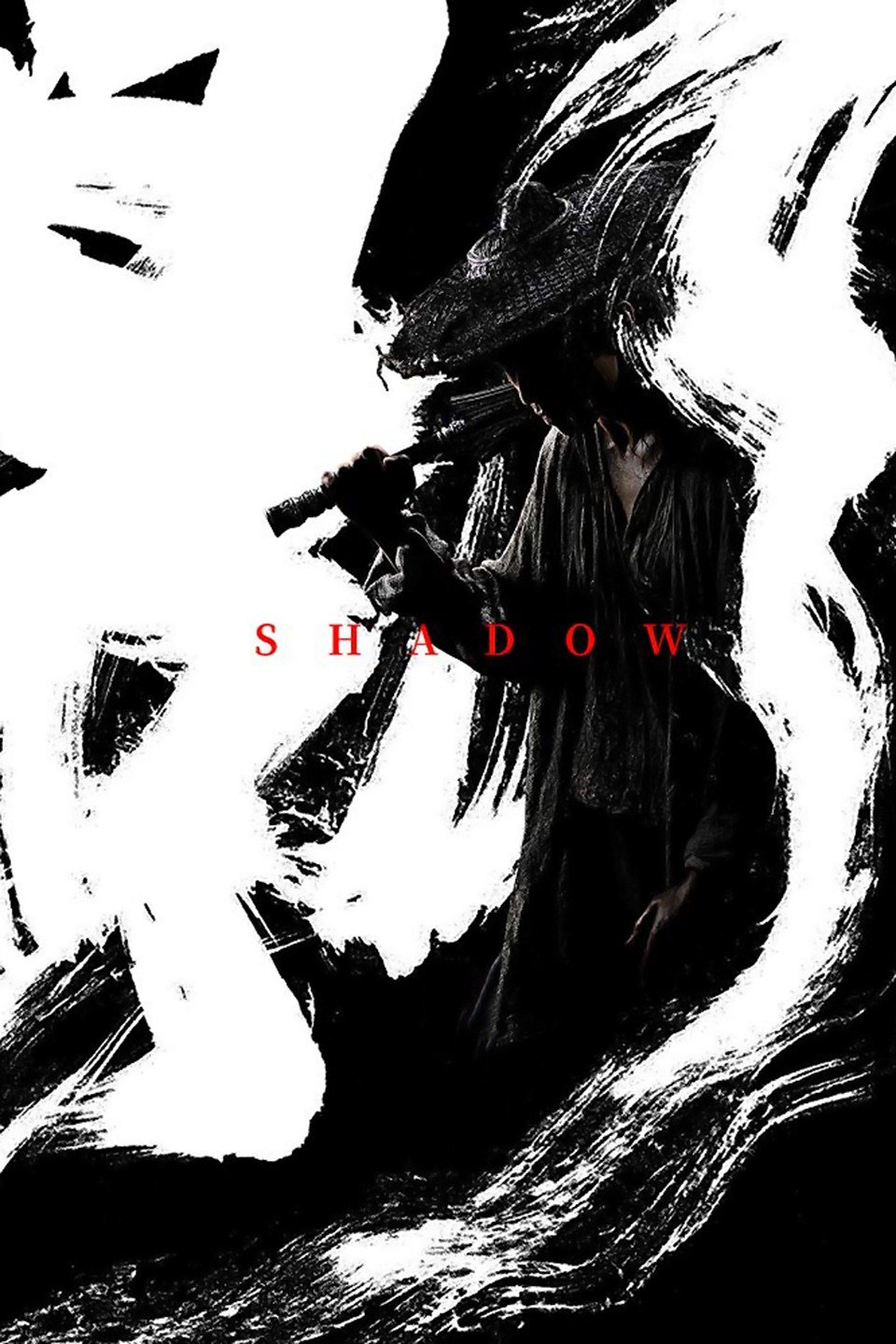
Set during the Three Kingdoms period of Chinese history, Shadow tells the story of Ziyu, an ambitious but feeble lord who, in an attempt to conquer a walled city, hatches a scheme involving his wife, Xiao Ai, his body double, Jingzhou, and lots and lots of umbrellas. And if that sounds vague, it’s only because the actual plot is so convoluted that it’s not worth trying to explain. However, that does not mean that you shouldn’t seek out this film if it’s playing at a theater near you.
Anyone who’s read my blog knows that I’m a big fan of Chinese director Zhang Yimou, having written about his films Hero, House Of Flying Daggers, and Riding Alone For Thousands Of Miles. I truly believe that he is one of the most talented visual stylists working today, or ever, given his immaculate framing, and vibrant use of color. He’s also got huge range as a storyteller, jumping back and forth from giant, martial arts spectacles to tiny, intimate dramas. Basically, I’m always excited to see what new projects he’s got in the pipeline, and this latest feature, Shadow, had been getting great reviews. So, naturally, I went and saw it. And, having done that, I’d like to share my thoughts.
On the positive side, the film looks absolutely stunning. Yes, that might seem obvious, considering that it’s Zhang Yimou behind the cameras, but the visuals are spectacular here, and, more importantly, functional. The movie, as the title suggests, is about shadows, in every sense of the word. Ziyu has a body double or “shadow.” He is frail and weak, a “shadow” of his former self. He plots and schemes, acting in the “shadows,” you might say. Basically, shadows are integral to the story, and the film tries to represent its themes of intrigue and deception by having a desaturated, almost black-and-white palette, though it is shot in color, as you can tell whenever you see blood or the actors faces. A film’s visuals should support the themes and ideas explored in its narrative, and this flick’s imagery absolutely does that. The acting is also quite good, with Deng Chao believably portraying both Ziyu and his double Jingzhou. And the third act, wherein Ziyu’s forces take the walled city using bladed umbrellas, is gorgeous, gory, martial arts goodness. That section, alone, is worth the price of a ticket.
That said, if you do decide to watch this movie, go in with tempered expectations. This is not a fast-paced, martial arts epic. It more closely resembles a Shakespearean political drama, with nobles in the castle meeting behind closed doors to scheme with each other. No action happens until the final third, and as I suggested in the first paragraph, the plot, wherein Ziyu tries to manipulated people so he can retake the walled city, is very convoluted. As a result, the first hour can feel kind of boring. Which is doubly frustrating when you realize that the film is less than two hours long. But, like I said, the third act climax is truly epic, and the visuals and performances are superb. For those reasons alone, I do recommend seeing this movie. Just go in knowing that the plot is convoluted, and the first hour is slow.
